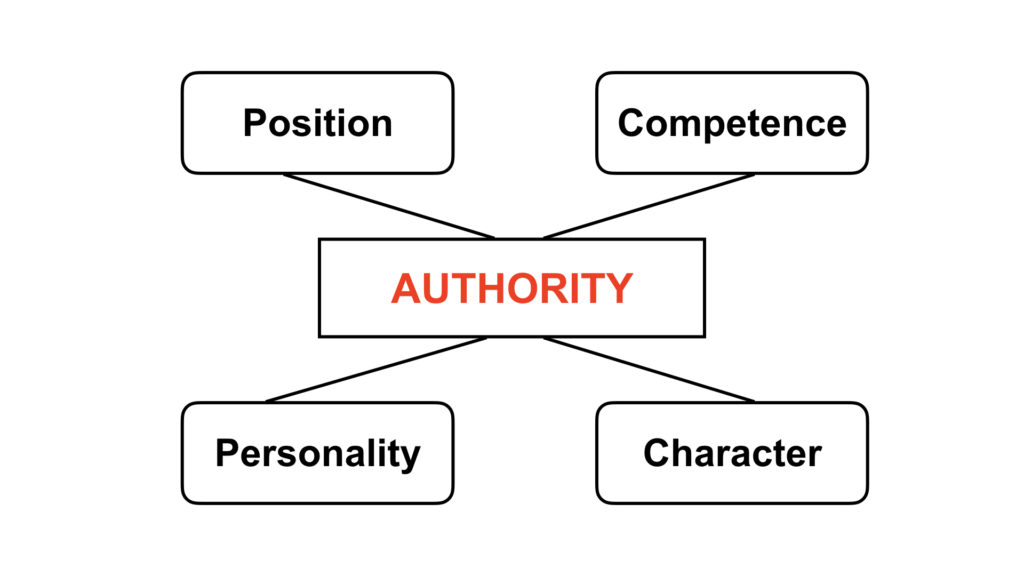 Today there are two dangerous extremes that people exhibit when it comes to looking at the topic of “work.” One extreme is to view work as something evil and, thus, something to avoid as much as possible. This view of work can be seen in how people dread Monday mornings, get some relief when “hump day” (Wednesday) comes and celebrate Friday’s with a shout of TGIF. When work if viewed as something that is a burden, the goal of work becomes making enough money to retire comfortably as soon as possible.
Today there are two dangerous extremes that people exhibit when it comes to looking at the topic of “work.” One extreme is to view work as something evil and, thus, something to avoid as much as possible. This view of work can be seen in how people dread Monday mornings, get some relief when “hump day” (Wednesday) comes and celebrate Friday’s with a shout of TGIF. When work if viewed as something that is a burden, the goal of work becomes making enough money to retire comfortably as soon as possible.
The second extreme that many people exhibit when it comes to viewing work is the concept of defining your life by your work. A person’s value is determined by what he/she does. When people see work as what defines them, there is often a dissatisfaction with one’s job and a constant effort to “climb the ladder” of success. Work dominates every waking moment and one is said to be a “workaholic.”
Either of these extreme views of work goes against the fact that God created man after His own image and, therefore, He created man to work. Work has dignity because it is a reflection of who God is. Throughout Scripture we see the fact that God is constantly “working.” In Genesis, He performed six days of the “work” of creation.
Thus the heavens and the earth, and all the host of them, were finished. And on the seventh day God ended His work which He had done, and He rested on the seventh day from all His work which He had done. Then God blessed the seventh day and sanctified it, because in it He rested from all His work which God had created and made. Genesis 2:1-3 (NKJV)
The Psalmist continually praised God for His “works.”
Say to God, “How awesome are Your works!…Come and see the works of God; He is awesome in His doing toward the sons of men. Psalm 66:3,5
O God, You have taught me from my youth; And to this day I declare Your wondrous works. Psalm 71:17
Jesus also was known for His “works” while He lived on earth.
And when John had heard in prison about the works of Christ, he sent two of his disciples. Matthew 11:2 (NKJV)
In order to fully understand what it means to be human, every person must realize that God created man to work. This is seen in Scripture by what is referred to as the cultural mandate in Genesis 1:28. Here we find God telling Adam and Eve to …be fruitful, and multiply, and replenish the earth, and subdue it… This is actually God’s job description to man. Nancy Pearcey explains it this way in her book, Total Truth.
The first phrase “be fruitful and multiply,” means to develop the social world: build families, churches, schools, cities, governments, laws. The second phrase, “subdue the earth,” means to harness the natural world: plant crops, build bridges, design computers, and compose music. This passage is sometimes called the Cultural Mandate because it tells us that our original purpose was to create cultures, build civilizations—nothing less.
From his very beginning man was created to work. One of the primary goals of education must be the effort to guide a child to understand the gifts and talents that God has created in him/her and to develop those talents and gifts. When this is accomplished, the child can then become sensitive to God’s call on his/her life. By answering God’s call on their lives our children can then perform work in order to fulfill God’s will for them.
The problem Christians face today is that we have lost the idea of vocation when it comes to work. This loss has evolved over many years. The progression that took place in how work is viewed goes something like this.
Work is God’s Call became Work is a job to be blessed by God which then became Work is a job to get ahead and is now seen as Work gives one the ability to consume.
Tim Keller wrote a powerful book, Every Good Endeavor. In his book, Keller addresses the need to regain the concept of work being a vocation to which God calls a person. He writes:
We must recover the idea that work is a “vocation” or calling, “contribution to the good of all and not merely…a means to one’s own advancement.”…To one’ self-fulfillment and power…Something can be a vocation or calling only if some other party calls you to do it, and you do it for their sake rather than your own. Our daily work can be a calling only if it is reconciled as God’s assignment to serve others.
Kevin Swanson explains how a biblical view of work should guide the education of our children when he writes in his book, Upgrade: 10 Secrets to the Best Education for Your Child:
Everybody is gifted and has a purpose in God’s world…Each child has a specific calling, framed by his unique talents and abilities…The challenge of the first eighteen years of a child’s education is to find that calling…A fulfilled life will be determined by whether he/she has centered in upon his or her life calling…A successful education is achieved when a child is prepared to make maximal use of his God-given talents and abilities in the accomplishment of the child’s calling.
In his book, Designed for Dignity, Richard Pratt states:
By filling and ruling over the world, we fulfill our true purpose in life. We reach the heights of dignity because we represent and extend the authority of the King of the universe.
Let me close with a statement made by Puritan theologian and writer William Perkins. He wrote,
The main end our lives…is to serve God in the serving of men in the works or our callings.
There a couple of questions we need to answer.
- How do you view work? Is it a burden or a blessing?
- How can your work be done in order to fulfill the cultural mandate?
- How are you modeling and teaching the next generation that man was created to work?

 One of the most important aspects of understanding what it means to be human is to grasp the reality that God created man to worship. When we hear the word worship today, many Christians immediately think of a style of music in the church. However, worship has a much deeper meaning than just one part of a church service. Webster’s 1828 Dictionary defines worship as to adore; to pay divine honor to; to reverence with supreme respect; to honor with extravagant love and extreme submission. Another definition that combines all of these aspects of worship together states,
One of the most important aspects of understanding what it means to be human is to grasp the reality that God created man to worship. When we hear the word worship today, many Christians immediately think of a style of music in the church. However, worship has a much deeper meaning than just one part of a church service. Webster’s 1828 Dictionary defines worship as to adore; to pay divine honor to; to reverence with supreme respect; to honor with extravagant love and extreme submission. Another definition that combines all of these aspects of worship together states, It is hard to comprehend how mixed up society is today. A major point of controversy is being battled over one’s gender. It has even gotten to the point that some “experts” claim that one’s sex is biological but one’s gender is a choice. One’s gender is determined by one’s feelings. In fact, some parents have even chosen not to identify the gender of a newborn baby because they want the child to be able to choose whatever gender he/she wants to be. Again, the issue at the bottom of all this craziness is determined by what it means to be a human being.
It is hard to comprehend how mixed up society is today. A major point of controversy is being battled over one’s gender. It has even gotten to the point that some “experts” claim that one’s sex is biological but one’s gender is a choice. One’s gender is determined by one’s feelings. In fact, some parents have even chosen not to identify the gender of a newborn baby because they want the child to be able to choose whatever gender he/she wants to be. Again, the issue at the bottom of all this craziness is determined by what it means to be a human being. In order to fully grasp what it means to be created in the image of God, we must understand that God created man for relationship. The doctrine of the Trinity is a crucial foundation stone of Christianity. The Father, Son and Holy Spirit are three separate persons in the Godhead. I cannot fully understand this reality with my finite mind. However, I can understand that God is a relational God. The Father, Son and Holy Spirit have always and will always be in perfect fellowship with one another. In Genesis 1:26, the Father tells the Son and the Holy Spirit let us make man in OUR image. Since God is a relational God and man is created in His image, then man was created to relate!
In order to fully grasp what it means to be created in the image of God, we must understand that God created man for relationship. The doctrine of the Trinity is a crucial foundation stone of Christianity. The Father, Son and Holy Spirit are three separate persons in the Godhead. I cannot fully understand this reality with my finite mind. However, I can understand that God is a relational God. The Father, Son and Holy Spirit have always and will always be in perfect fellowship with one another. In Genesis 1:26, the Father tells the Son and the Holy Spirit let us make man in OUR image. Since God is a relational God and man is created in His image, then man was created to relate! In order to understand what it means to be human, we have to go back to the beginning of human history. Even though the world tries to convince us that man is merely a mechanistic organism that is the result of billions of years of evolutionary change, the reality is that man was designed in the mind of God and created by the Word and will of God. In Genesis 1 we find these words.
In order to understand what it means to be human, we have to go back to the beginning of human history. Even though the world tries to convince us that man is merely a mechanistic organism that is the result of billions of years of evolutionary change, the reality is that man was designed in the mind of God and created by the Word and will of God. In Genesis 1 we find these words. I have a book on my shelf that I take down a couple of times each year. The book was written by a young man that I first came to know while serving at Lynchburg Christian Academy. The book’s title is The Little Red Book of Wisdom. This small book as several short chapters that provide Christians will some keys on how to obtain true wisdom. Mark learned these nuggets of wisdom from his father and others who God used to influence his life.
I have a book on my shelf that I take down a couple of times each year. The book was written by a young man that I first came to know while serving at Lynchburg Christian Academy. The book’s title is The Little Red Book of Wisdom. This small book as several short chapters that provide Christians will some keys on how to obtain true wisdom. Mark learned these nuggets of wisdom from his father and others who God used to influence his life. something that happens when I start every morning spending time with the Lord. When I open God’s Word and let Him speak to me, it changes my perspective on what I am facing at that particular time. It also prepares me for what God has in store for my life that day — many times it’s things that I don’t even know are going to take place.
something that happens when I start every morning spending time with the Lord. When I open God’s Word and let Him speak to me, it changes my perspective on what I am facing at that particular time. It also prepares me for what God has in store for my life that day — many times it’s things that I don’t even know are going to take place. A lot of Christians that I know are very faithful in giving God the first hour in every day. However, this second Wisdom of Firsts is one that many of us, especially those of us in full-time ministry, struggle with. It is also important to give God the first day of every week. I know that you might be thinking that you do that. You may be one who never misses a Sunday going to church. In fact, you may even use your gifts on Sunday in service at your church. However, I am not talking about giving God the first morning of every week.
A lot of Christians that I know are very faithful in giving God the first hour in every day. However, this second Wisdom of Firsts is one that many of us, especially those of us in full-time ministry, struggle with. It is also important to give God the first day of every week. I know that you might be thinking that you do that. You may be one who never misses a Sunday going to church. In fact, you may even use your gifts on Sunday in service at your church. However, I am not talking about giving God the first morning of every week. quaint establishments that have various things on the walls or shelves that are reminders of how the business started and grew over the years. One of the items I have seen on walls of private businesses many times is a small picture frame with a dollar bill encased inside. It represented the “first” dollar that the original owner made in the business.
quaint establishments that have various things on the walls or shelves that are reminders of how the business started and grew over the years. One of the items I have seen on walls of private businesses many times is a small picture frame with a dollar bill encased inside. It represented the “first” dollar that the original owner made in the business. One of my favorite historical accounts found in Scripture is that of David’s fight with Goliath. When you read about this confrontation in 1 Samuel 17, there are several points that are worthy of one’s consideration. David is at home taking care of the sheep while his three oldest brothers are with the Israelite army fighting the Philistines. I imagine that David must have dreamed about what it might be like to be on the battlefield instead of watching some smelly old sheep.
One of my favorite historical accounts found in Scripture is that of David’s fight with Goliath. When you read about this confrontation in 1 Samuel 17, there are several points that are worthy of one’s consideration. David is at home taking care of the sheep while his three oldest brothers are with the Israelite army fighting the Philistines. I imagine that David must have dreamed about what it might be like to be on the battlefield instead of watching some smelly old sheep. mock the God of Israel and not standing up to him. This must have mystifying to David.
mock the God of Israel and not standing up to him. This must have mystifying to David. However, I would experience something like David experienced if I stayed around the week following the Sunday worship time. Then I would witness a giant come forth and start defying the God that Christians had just gathered to worship on Sunday. He would declare that this God wasn’t so great and even mock His existence. It would be at this point that if I were to start asking church leaders and other Christians why this was being allowed to take place, I would be told not to rock the boat. They might tell me that every Sunday they gathered together and would join in going through some dynamic military maneuvers. Then on Monday through Friday, this giant would come out and start mouthing off about God etc. However, by the end of the week, he would go back into his camp and God’s people would gather once again to sing, shout and hear the Word of God preached. No harm – no foul!
However, I would experience something like David experienced if I stayed around the week following the Sunday worship time. Then I would witness a giant come forth and start defying the God that Christians had just gathered to worship on Sunday. He would declare that this God wasn’t so great and even mock His existence. It would be at this point that if I were to start asking church leaders and other Christians why this was being allowed to take place, I would be told not to rock the boat. They might tell me that every Sunday they gathered together and would join in going through some dynamic military maneuvers. Then on Monday through Friday, this giant would come out and start mouthing off about God etc. However, by the end of the week, he would go back into his camp and God’s people would gather once again to sing, shout and hear the Word of God preached. No harm – no foul! that Dr. Ken Hemphill wrote about in his book, EKG: The Heartbeat of God. I was reminded that Jesus declared that the kingdom of God must be our highest priority in our lives, homes, churches and schools.
that Dr. Ken Hemphill wrote about in his book, EKG: The Heartbeat of God. I was reminded that Jesus declared that the kingdom of God must be our highest priority in our lives, homes, churches and schools. This concept is also applicable to the education we give to our children and youth. Their education must be different from the secular education that this world provides. The difference must be evident in the school’s philosophy and the worldview from which all teaching takes place. However, we are facing a crisis in today’s homes, churches and schools. Hemphill accurately describes our current crisis this way.
This concept is also applicable to the education we give to our children and youth. Their education must be different from the secular education that this world provides. The difference must be evident in the school’s philosophy and the worldview from which all teaching takes place. However, we are facing a crisis in today’s homes, churches and schools. Hemphill accurately describes our current crisis this way. As another school year comes to close here in this country and we start preparing for a new year, I believe it is important that we take some time and reflect on God’s call on our lives, our homes, our churches and our schools. In light of what I have shared above, there are some questions that we need to consider.
As another school year comes to close here in this country and we start preparing for a new year, I believe it is important that we take some time and reflect on God’s call on our lives, our homes, our churches and our schools. In light of what I have shared above, there are some questions that we need to consider. Last week I heard a sermon on the family that had a different twist to it. The text for the message was taken from Matthew 12:25 which reads:
Last week I heard a sermon on the family that had a different twist to it. The text for the message was taken from Matthew 12:25 which reads:
 Unfortunately, most Christians suffer from double-mindedness! We have divided our lives up into two compartments — the secular and the sacred. Certain areas of life are controlled by a secular worldview. The “religious” areas of life are guided by a biblical worldview. The result is that there is no cohesiveness to our lives, our homes, churches, schools etc. This is not something that only exists in individuals’ minds. It is also prevalent in how we educate our children and youth. We take them to church on Sundays so that they know what the Bible says about life. Then, the majority of parents send their children to secular schools the rest of the week where the world tells them what life is all about. The result is that our children are being educated in double-mindedness and, therefore, are doomed for failure and destruction.
Unfortunately, most Christians suffer from double-mindedness! We have divided our lives up into two compartments — the secular and the sacred. Certain areas of life are controlled by a secular worldview. The “religious” areas of life are guided by a biblical worldview. The result is that there is no cohesiveness to our lives, our homes, churches, schools etc. This is not something that only exists in individuals’ minds. It is also prevalent in how we educate our children and youth. We take them to church on Sundays so that they know what the Bible says about life. Then, the majority of parents send their children to secular schools the rest of the week where the world tells them what life is all about. The result is that our children are being educated in double-mindedness and, therefore, are doomed for failure and destruction. course the only worldview that can provide this type of congruency is a biblical one. Until we teach our children at home, church and school that the value of human life is found in the reality that God created each person in His own image, we will never see a decrease in the senseless loss of human life that is so common in the world today. That is why I have spent the last couple of years developing resources that I pray will help Christian parents, church leaders and educators develop a biblical worldview. If we don’t unite the home, church and school and provide our children with a biblical worldview education, we will continue to see future generations grow up with divided minds. God’s Word says that when this occurs, they cannot stand; they will be brought to desolation!
course the only worldview that can provide this type of congruency is a biblical one. Until we teach our children at home, church and school that the value of human life is found in the reality that God created each person in His own image, we will never see a decrease in the senseless loss of human life that is so common in the world today. That is why I have spent the last couple of years developing resources that I pray will help Christian parents, church leaders and educators develop a biblical worldview. If we don’t unite the home, church and school and provide our children with a biblical worldview education, we will continue to see future generations grow up with divided minds. God’s Word says that when this occurs, they cannot stand; they will be brought to desolation! Position
Position
 This is also very true when it comes to the exercise of one’s authority. If we are not trustworthy and honest with those we are trying to influence, it will hurt our ability to exercise effective authority over them. We must develop a strong credit rating with our children and/or students. We must live lies of integrity where we actually do what we say we will do.
This is also very true when it comes to the exercise of one’s authority. If we are not trustworthy and honest with those we are trying to influence, it will hurt our ability to exercise effective authority over them. We must develop a strong credit rating with our children and/or students. We must live lies of integrity where we actually do what we say we will do. became parents. It wasn’t that they necessarily weakened their parental authority. They basically did nothing to strengthen it. They were like the unjust steward who hid his master’s talent in the ground. The result that comes with not strengthening one’s authority is that that person can actually lose any influence over the ones that God wanted them to lead. Sometimes a parent’s authority is taken away and given to another person or group.
became parents. It wasn’t that they necessarily weakened their parental authority. They basically did nothing to strengthen it. They were like the unjust steward who hid his master’s talent in the ground. The result that comes with not strengthening one’s authority is that that person can actually lose any influence over the ones that God wanted them to lead. Sometimes a parent’s authority is taken away and given to another person or group.
Recent Comments